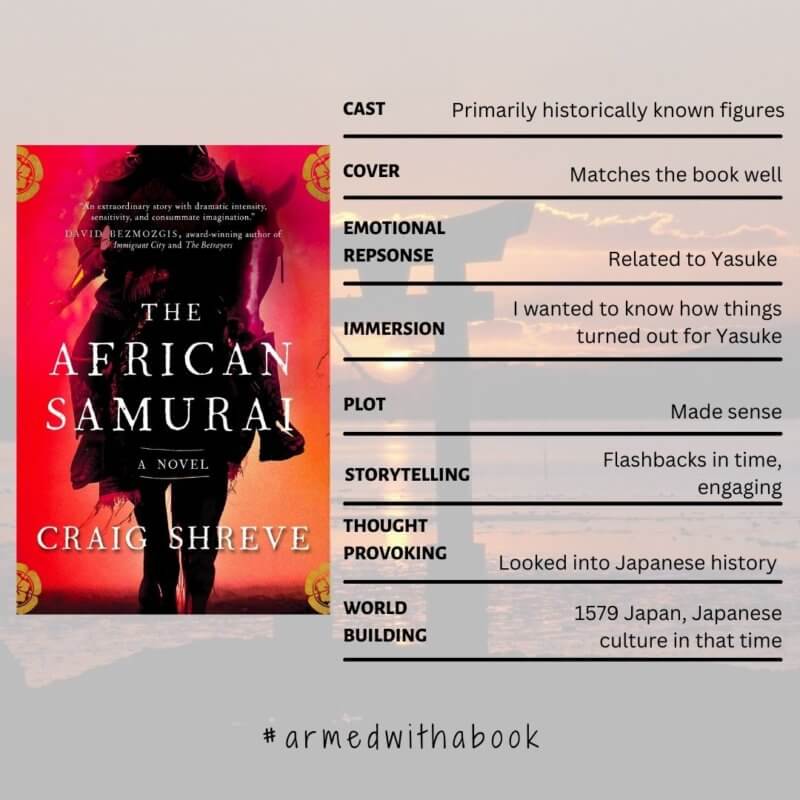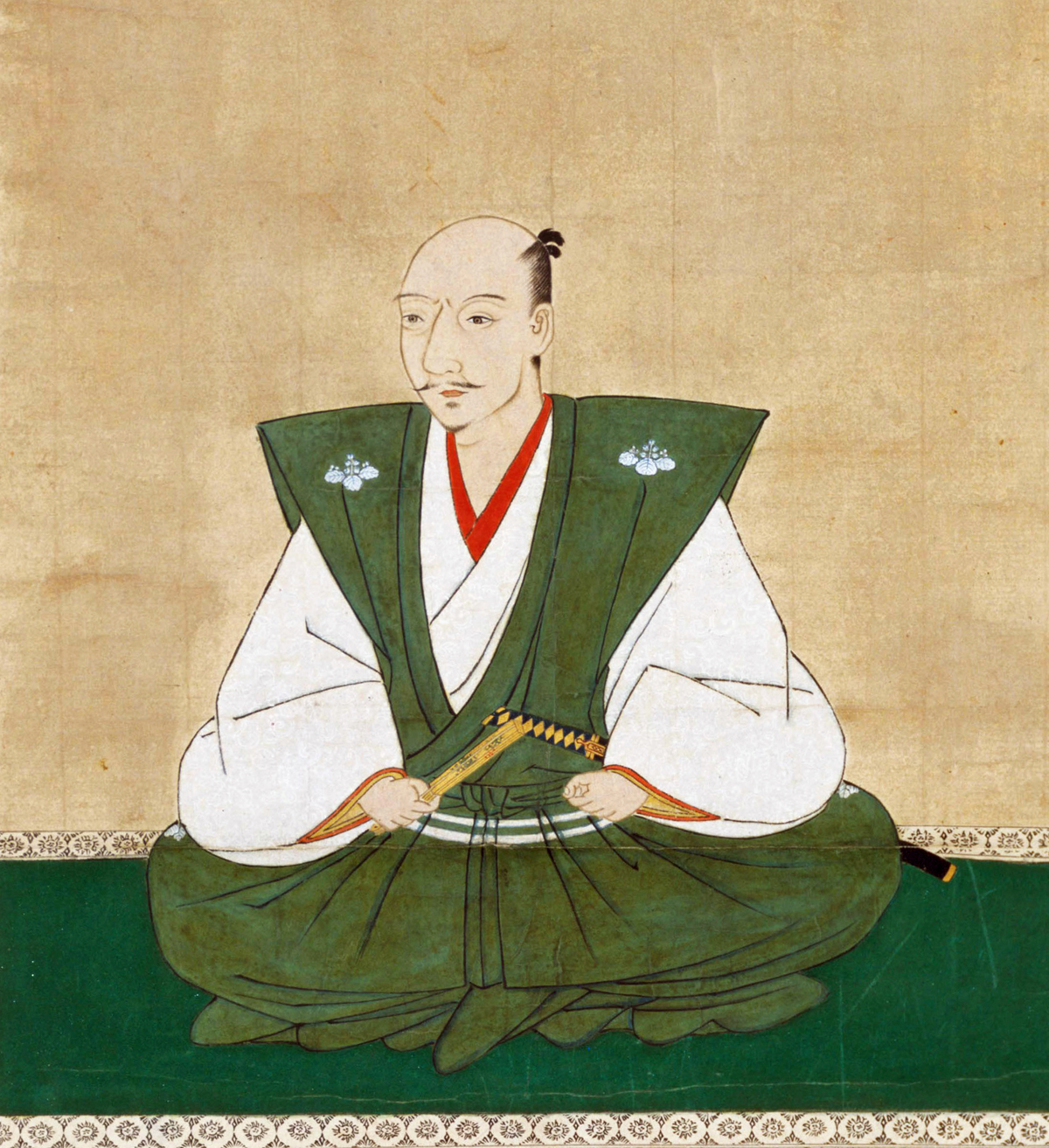From Simon & Schuster’s Summer catalog, The African Samurai was an anticipated release for me! Historical fiction offers me a great opportunity to learn about history and time-past. While my recent read of Lady Tan’s Circle of Women had focused on a female protagonist in 1800s China, The African Samurai gave me the chance to explore Asian history more and read from the perspective of a warrior and slave in 1579 Japan. Here’s what this book is about:

The African Samurai
By Craig Shreve | Goodreads
Set in late 16th-century Africa, India, Portugal, and Japan, The African Samurai is a powerful historical novel based on the true story of Yasuke, Japan’s first foreign-born samurai and the only samurai of African descent—for readers of Esi Edugyan and Lawrence Hill.
In 1579, a Portuguese trade ship sails into port at Kuchinotsu, Japan, loaded with European wares and weapons. On board is Father Alessandro Valignano, an Italian priest and Jesuit missionary whose authority in central and east Asia is second only to the pope’s. Beside him is his protector, a large and imposing East African man. Taken from his village as a boy, sold as a slave to Portuguese mercenaries, and forced to fight in wars in India, the young but experienced soldier is haunted by memories of his past.
From Kuchinotsu, Father Valignano leads an expedition pushing inland toward the capital city of Kyoto. A riot brings his protector in front of the land’s most powerful warlord, Oda Nobunaga. Nobunaga is preparing a campaign to complete the unification of a nation that’s been torn apart by over one hundred years of civil war. In exchange for permission to build a church, Valignano “gifts” his protector to Nobunaga, and the young East African man is reminded once again that he is less of a human and more of a thing to be traded and sold.
After pledging his allegiance to the Japanese warlord, the two men from vastly different worlds develop a trust and respect for one another. The young soldier is granted the role of samurai, a title that has never been given to a foreigner; he is also given a new name: Yasuke. Not all are happy with Yasuke’s ascension. There are whispers that he may soon be given his own fief, his own servants, his own samurai to command. But all of his dreams hinge on his ability to protect his new lord from threats both military and political, and from enemies both without and within.
A magnificent reconstruction and moving study of a lost historical figure, The African Samurai is an enthralling narrative about the tensions between the East and the West and the making of modern Japan, from which rises the most unlikely hero.
The African Samurai – Review
The African Samurai is the story about a man uplifted from slavery and then reduced back to the same position. Yasuke was a young boy when he was taken from his village. At twelve years of age, he has to become a fast learner to survive, seeing the bloodshed and violence along the way. Yasuke grows to become a hardened person. He has built walls around his past to save himself from the grief.
Yasuke was sold to the church at some point in his life. Set in the early days of colonization, the church was rapidly trying to spread its reach. I took the opportunity to research the spread of christianity and its current representation in Japan. Japanese history is full of eras where the church was banned from actively converting.
Yasuke travelled to Japan with Alesssandra Valignona, an Italian priest and Jesuit missionary, who held the title of Visitor to the Indies. This allowed him the highest authority next to the Pope. I enjoyed Yasuke’s musings around christianity, its message and how the Jesuits and other worshippers interpreted that message. He was privy to what the Jesuits had actually come to do in Japan. He is a smart and observant person, focused on his job. He can see through the actions of people and is diligent and alert.
While passing through Nabunaga’s territory, Valignona meets with Nabunaga and a political transaction leads to Yasuke being sold to Nabunaga. Yasuke is shocked by this. By that time, he had been working for the church for some time and had felt that his opinions and advice as a protector were valued. This is a rude awakening for him, speaking to how he has always had the status of slave. This further invokes memories of the past that he keeps at bay. The first part of the book focused on this event.
My curiosity about Yasuke’s past was quenched in the second and following parts of The African Samurai. Interlaced between his time and ascend to recognition in Nabunaga’s court, is his life, what he remembers, of when he was child and the time he has spent across the globe as a slave under different people. In Nabunaga’s court, it is the first time that he has found acceptance and is able to make friends. Japanese people have never met anyone like him but they are able to quickly start treating him as one of their own when they see their leader do so. The African Samurai is immersive in Japanese culture. The way the people dress, their habits, rituals and recreational activities are knitted into Yasuke’s time.
I don’t have much knowledge of Japanese history and The African Samurai got me very curious to read up! I learned about Oba Nabunaga, the First Unifier of Japan. I also learned about Japan’s government system and the organization of warlords and monarchy as well as the Divine Wind (kamikaze), unsuccessful invasion attempts on Japenese land. I loved the art I came across for these times! Read more here. Learn more about Nabunaga and his reign here.

The cast of The African Samurai is primarily Japanese and church historical figures whose names are documented. In reading the author’s note, I found it fascinating that most of the details around Yasuke come from Japanese sources. His time in slavery with the church is not written about and the parts of the book set outside of Japan were fictional.

If you are looking to read up on some Japanese history, this is a great one to pick up! Add it on Goodreads. If you have read books that you enjoyed about Japanese and African history, let me know in the comments! 🙂
Check back to read the interview with the author tomorrow!
Many thanks to the publisher for sending me an advanced copy of this book for an honest review.




Be First to Comment